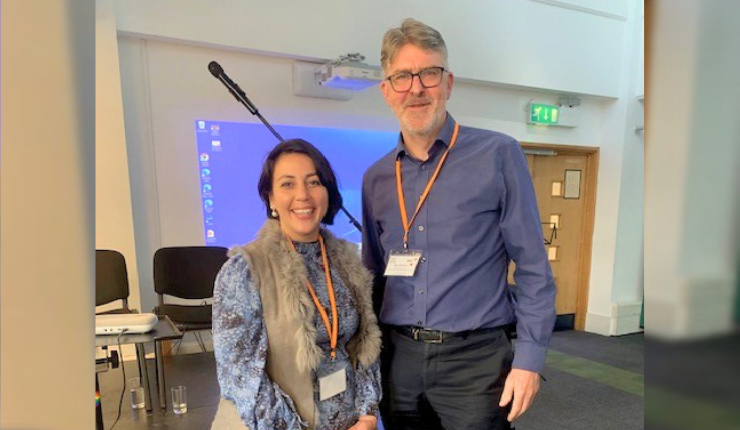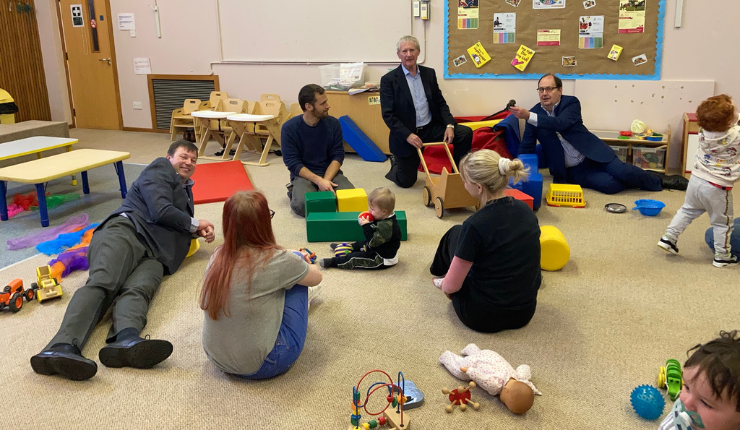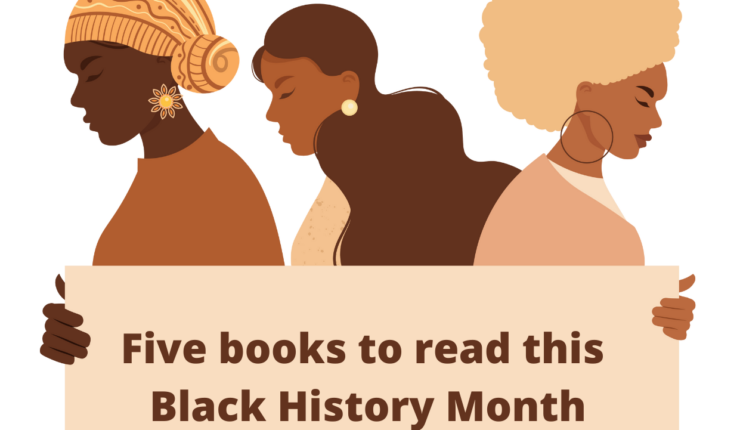Monitoring and evaluation
Takeaways from NPC Ignites 2023 – A Dive into Impact and Evaluation Team’s Perspectives

Jo Haffenden (Impact and Evaluation Manager) with Michael Adamson, former Chief Executive of British Red Cross
Read the Impact team’s blog to learn about how, through attending the NPC Ignites conference, they gained valuable insights that will influence not only how we carry out our work, but also underpinning the thinking to our impact and evaluation.
The Impact and Evaluation team at the Masonic Charitable Foundation (MCF) attended NPC Ignites conference in October. NPC Ignites is an annual event organised by New Philanthropy Capital (NPC), a UK-based charity and think tank. The NPC Ignites conference focuses on issues related to the charitable and philanthropic sectors, bringing together professionals, leaders, and experts to discuss and share insights on topics such as impact, evaluation, collaboration, social change, and the challenges faced by the third sector to ensure organisations are maximising their social impact and improving the lives of the people they serve.
The Impact and Evaluation team at the conference
The Ignites conference was a great opportunity for us to get a snapshot of activity across the grant-making sector. It was a day for us to network and talk best practices; and with it being hosted by NPC there was sure to be lots of impact and evaluation inspiration! The MCF’s Impact and Evaluation team have put together this blog to share what we found particularly thought-provoking about the conference, and the nuggets of wisdom we will each take away with us from the series of inspirational speakers.
First takeaway
The crises faced by civil society (in the broader context of challenging political and economic times) provided a backdrop to the need for collaboration in accelerating socially invested change. We start our conversation here on a dour (yet critical) note on the growing pessimism across Britain, in the age of ‘polycrisis’.
Trinh Tu from Ipsos Public Affairs presented insights into the growing pessimism across Britain from their extensive polling work: in 1998 40 per cent of people thought Britain was getting worse as a place to live, which had risen to 71 per cent in 2008 and now is at 76 per cent. This is, perhaps, unsurprising considering the variety of crises we have experienced in recent years (the pandemic, cost of living, environmental to name but a few). To the point, where we are in fact in age of ‘polycrisis’ which she defines by citing Adam Tooze, who stated: ‘a polycrisis is not just a situation where you face multiple crises. It is a situation… where the whole is even more dangerous than the sum of its parts’, a sentiment which has stuck in the weeks that have followed the conference. Trinh Tu also presented data showing that financial instability negatively impacts upon ones health through increased anxiety.
This is echoed through our work at the MCF: with our initial impact survey results showing that our beneficiaries relate the financial security which they see our grants as contributing towards, with a more general increased sense of wellbeing. We will be digging further into this concept of wellbeing over the next quarter as we look to understand what this means for our beneficiaries, and how the grants we make fit into this.
Second takeaway
Linked to discourse on polycrisis was the importance placed on open conversation and action on climate change, sustainability, and the need for social and environmental charities to join forces in helping those most affected by the environmental crisis. What really hit was the breadth and urgency of the debate, the inevitability of change, and the need for action in the here and now that helps rather than hinders people who can least afford the pace of change. Hearing the immense value that children and young people placed on the environment and climate crisis for their sense of wellbeing stuck as an insight into how priorities need to be defined and shaped for their future.
The session led by Nick Addington (William Grant Foundation) with Lynn Perry (Barnardos) and Areeba Hamid (Greenpeace) provided deep insight in ‘how the climate crisis is not just an environmental matter’ and the need for radical action in finding a healthier, fairer and sustainable future. Referencing impact in relation to younger people, older people, disabled people, people from ethnic minority (or global majority) communities, people on low incomes as well as health and infrastructure was truly astounding. It was a really positive to see how NPC and the charity sector have bonded in partnership to address the impact on these groups and provide a coordinated effort to influence campaigning and policy change. ‘Everyone’s Environment’ is a collaboration of over 50 charities with an aim to ‘accelerate action on the social impacts of the environmental crises’ using participatory and evidence led approaches. To see that coordinated efforts were taking place to help people and communities least resilient to the inevitability of change felt strangely reassuring. It has also allowed us to reflect on our own work recently on creating a partnerships framework, and the great importance of utilising partnerships to deliver change more quickly and effectively.
The third, and final takeaway
The charity sector was once depicted as a competitive sector where individual charities required competing amongst themselves to access finite financial resources available to them. But this narrative is evolving. Charities and funders are increasingly working more together in partnership and coalition to accelerate the advancement of their charitable social purpose*. More charities are undertaking political activity in support of their charitable aims and along this, the charity sector is increasingly being sought as a political agent for the creation of sustained and systemic social change. The charity sector, and within that the sum of its parts, cannot be perceived as apolitical actors if the charity aims to achieve systemic change, so often required for charities to achieve their social purpose.
Overall, the charity sector faces and will continue facing difficult times ahead. Mistakes will be made, but the need to move on and continue to build trust as partners will be critical. Highly skilled visionary leaders and effective collaborations will be paramount in driving the sector forward. Michael Adamson, former Chief Executive on his ‘after 13 years at British Red Cross’ reflection reminds us of this: “No individual organisation can achieve its vision and mission on its own… Great movements enable results in which the whole is greater than the sum of the parts… When we look at the state of the world, we need it more than ever”.
* For example, as part of its commitment to partnership working, the MCF will be launching its Partnership Framework Toolkit in January 2023. A guide developed with the primary goal to cultivate highly successful partnerships when working with the MCF.
** As part of the MCF’s long-standing programme to provide relief to those in distress following humanitarian crises worldwide, an emergency grant of £50,000 was given to the BRC towards helping those affected by the conflict in Gaza and Israel.
Johanna Haffenden (Impact and Evaluation Manager)
Ames Petzoldt, Sarah Carson (Monitoring and Evaluation Officers)





